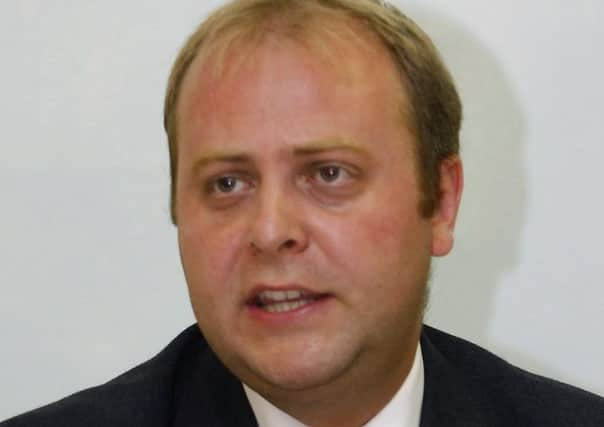Bill Jamieson: Negotiating the tax powers minefield


Without this, Scotland’s parliament would be proceeding blindly across all manner of pitfalls. Whether you are Left or Right, in favour of independence or a defender of the Union, an independent body, equivalent in power and scope to the Office of Budget Responsibility that overlooks the UK Exchequer, is vital for a parliament with powers over personal and business taxes amounting to £15 billion. With assigned VAT, this total rises to £20.6bn.
This is the background to the legislation at Holyrood cresting a legal framework for the Scottish Fiscal Commission. It has been operating on a non-statutory basis since 2014 and its work has been narrowly focused on Scottish Government forecasts of receipts for the Land and Buildings Transaction Tax, the Scottish Landfill Tax and business rates.
Advertisement
Hide AdAdvertisement
Hide AdThe bill will give the commission a legislative underpinning – safeguarding its independence in accordance with the Organisation for Economic Co-operation and Development’s (OECD) principles for independent fiscal institutions. It will also provide a basis for expanding functions in future in line with any expansion in the fiscal powers of the Scottish Parliament.
However, while there is broad agreement on the need for a stronger commission, disagreements have arisen over the scope of its work. Of particular concern is disagreement over the drafting and preparation of economic forecasts. This matters, because it is the performance of the economy – its growth rate and dynamics – that will critically determine the strength of tax revenues flowing to the Scottish Exchequer.
The finance committee of the Holyrood parliament has taken issue with the administration’s drafting of the bill. Under this, few powers would be ceded to the commission. Specifically, it proposes that the government, not the independent commission, would draft and prepare the official forecasts.
Little wonder that the finance committee has taken exception. For this would undermine the purpose of a commission and effectively allow the Scottish Government to be judge and jury of its own economic forecasting and performance. The committee believes that the commission, not the government, should independently undertake forecasting and assessment.
Matters will come to a head this week with the debate on Stage 2 of the Fiscal Commission Bill due on Wednesday morning. Committee member Conservative Gavin Brown MSP has lodged an amendment that reflects its anxieties. And unless it changes its view over the next few days, there is every possibility of a government defeat on Wednesday.
The committee made clear last month that the commission should be given the role of producing the official forecasts for the devolved taxes. While the bill proposes that the Scottish Government produces the forecasts, the committee believes the critical issue on forecasting is the credibility of the commission as an independent body, and that its independence would be enhanced by having responsibility for the forecasts.
It has also called for a substantial widening of the commission to include assessing how well the Scottish Government performs against its fiscal rules and an assessment of the long-term sustainability of the public finances. It believes there is a lack of institutional capacity within Scotland providing independent scrutiny of the public finances and the commission provides a substantial opportunity to fill that gap.
The SNP’s committee convener, Kenneth Gibson, said: “We are strongly of the view that not only should the Scottish Fiscal Commission be independent, but it is vital that it is perceived to be independent. That is why we are calling for the bill to be amended to strengthen the commission’s role and to give it responsibility for producing the official forecasts.”
Advertisement
Hide AdAdvertisement
Hide AdThe debate has been heightened by recent questioning over the credibility of the Scottish Government’s current forecasting. Economists from Inverness-based Tony Mackay and John McLaren of the Centre for Public Policy Research and Fiscal Affairs Scotland have questioned both the accuracy of official estimates of growth in the construction sector and the GDP estimates overall. According to the latest official release, Scotland’s economy grew by just 0.1 per cent in the third quarter of last year – well below the growth rate of the UK overall in this period.
As if to add to the confusion, two reports in the coming week point in sharply different directions – one from accountants Grant Thornton indicating that businesses plan to employ more staff and increase salaries in 2016, and another from accountants and business advisers BDO that business confidence has fallen to a three-year low.
Independent scrutiny and analysis is thus far from an academic spat, and indeed, is more than ever needed to help guide businesses as well as policymakers.
Take, for example, the latest proposals from Scottish Labour to raise the income tax rate across the board in Scotland by 1p in the pound. As this tax impost would apply to low income households it is further proposed that households below a certain level of income would receive a compensating annual cash disbursement from their local authority – even if they pay no tax at all.
Setting aside the administrative complexities of this proposal, it would be useful to have an economic impact assessment of imposing on Scots a tax rate higher than the rest of the UK and the likely revenue such an additional tax rate would raise – coincident, presumably with a relaxation of the council tax freeze – after behavioural effects are taken into account.
A practical difficulty ahead is the question of from where the commission would recruit to undertake the detailed number-crunching and analysis required. Scotland has some outstanding economists but we are not over-endowed with them. Nevertheless, subject to adequate recruitment, the proposed commission is a wholly necessary body and must provide independent assessments of where we are going and the speed as well as direction of travel. «